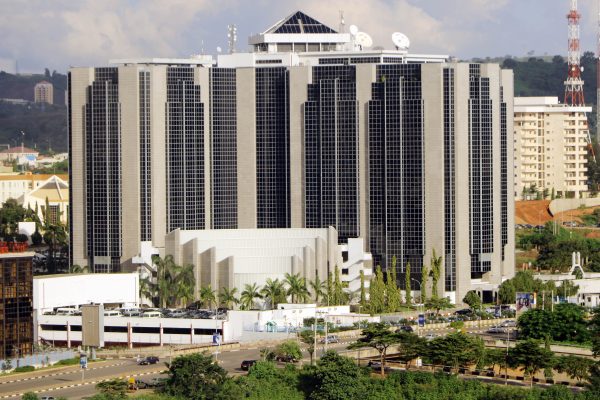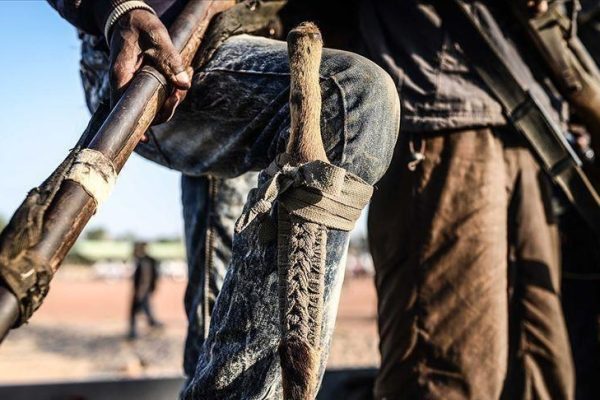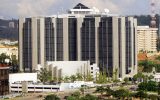by Les Leba
Whether anyone chooses to agree with this analysis is not important; the truth remains clear that CBN instigates the oppressive burden of excess cash in the system, when it captures our dollar earnings and substitutes same with monthly naira allocations.
It is bad enough to ever be in a position where one borrows one’s money back, but for our Central Bank to have done so for so many years at rates of between 13 and 14 per cent, as admitted recently by Governor Lamido Sanusi, can at best be described as an unfortunate moral hazard, which may border on economic sabotage.
Indeed, according to Alhaji Suleman Barau, Deputy Governor at the CBN, who corroborated Sanusi’s observation, the three tiers of government had almost N2.384tn lodged in commercial banks in zero interest accounts by June 2013. Barau also revealed that such liquidity instigated government borrowing, and may have already improved the profitability of banks by about N300bn, even when they added no value to the economy; thus, in spite of our economic and infrastructural hemorrhage, banks may have enjoyed a bonanza of over N3000bn for doing nothing in the last 10 years. It is even worse that despite the huge cost of service, funds borrowed were simply kept idle (sterilised) by the apex bank, in order to control excess cash supply in the system.
The easy money to be made from warehousing free government funds, produced marketing strategies, which included ambitious targets for delectable mini-clad young women, called relationship officers, as foot soldiers to attract deposits! Inevitably, salaries and budgeted projects of MDAs were deliberately delayed so that public officers could earn off-the-record kickbacks from those banks, which kept free government funds.
Thus, Sanusi’s recent directive that banks must keep 50% of government deposits inert, as reserves, is obviously an attempt to stem the folly aaznd the obvious fraud in government borrowing back its own money at horrendous costs.
However, there is no positive change since the CBN’s directive, as the Debt Management Office and the CBN have since borrowed about N300bn with treasury bills and bonds, while simultaneously paying out over N200bn to redeem such matured government debts, to the same banks. Furthermore, the average cost of lending to the real sector has also risen above 25%, while the naira exchange rate has paradoxically come under heavy downward pressure. The latest addition of the accounts of such MDAs as NNPC, Customs and Federal Inland Revenue Service, to the 50% Cash Reserve Requirement will not achieve any meaningful purpose, but may, in fact, be counterproductive, as further reduction of the extant cash surplus will only lead to still higher cost of funds, which will in turn reduce prospects of economic growth, while increasing the rate of unemployment and the impact of ravaging inflation on the poor.
It is inexplicable that both the Federal Executive and the National Assembly appear unperturbed by such a suffocating predicament, but it is, worse still, that civil society, including Nigerians of great intellect worldwide, and the experts in CBN’s Monetary Policy Committee appear insensitive to the apparent fraud of government borrowing back its own money at ridiculously high interest rates for over 30 years. Indeed, the label of fraud for such reckless management of public funds is probably a poor euphemism of a more vicious crime of economic sabotage.
How, for example, does one explain that, in spite of hundreds of billions of naira government’s free funds in the hands of the banks in 2009, the CBN, simultaneously, curiously maintained Cash Reserve Ratio (CRR) for all deposits, including government deposits at a mere 1%, but then, proceeded thereafter, to mop up the resultant cash surfeit by committing government to heavy borrowing at double-digit interest rates from the same banks. Interestingly, the CBN mischievously blames excessive government spending for its own inability to bring about lower single-digit rates of interest and inflation. In contrast, international best practice is to increase government spending, so as to create demand, and boost industrial activities and job opportunities, in any economy plagued with mass unemployment like ours. Incidentally, the Guardian newspaper editorial of August 28, observes that “If public sector deposits in June 2013 constituted 20% of the N15tn bank deposit base…, where then is the touted public sector dom
inance?” The editorial, therefore, rightly concluded that “There remains a further N12tn of private deposits that (with CRR at 12%) endows the bank with a maximum lending capacity of N96tn.”
Whether anyone chooses to agree with this analysis is not important; the truth remains clear that CBN instigates the oppressive burden of excess cash in the system, when it captures our dollar earnings and substitutes same with monthly naira allocations. That is why CBN’s self-styled “own dollar reserves” grow as naira liquidity also increases, and propels government to borrow back its own funds at an oppressive cost, to cage spiraling inflation!
It is unusual for any central bank to make a claim to its own foreign reserves, which exist outside a nation’s consolidated revenue fund. To be fair, Sanusi inherited and sustained this fraudulent shenanigan in monetary policy management; nonetheless, this oppressive system continues to create ample room for corrupt enrichment in the management of public funds. For example, fuel subsidy payments and the oddity of government borrowing back its own money at ridiculous rates of interest, cost our nation over N2tn annually, with no value added! Undoubtedly, our severe industrial and economic deprivations will continue for as long as we all close our eyes, while CBN’s monetary policies continue to make us poorer, just as CBN’s own reserves conversely swell.
Curiously, on the fiscal front, the same vein of economic sabotage is also discernible in the manner projected revenue in annual budgets is deliberately understated, with extremely conservative crude export price/output benchmarks, so that heavy government borrowing become necessary to fund the ‘ghost’ deficits deliberately created in annual budgets! It is of no consequence to our expert economic managers that existing so-called surplus or excess public funds remain domiciled in zero interest accounts, while government sustains unnecessary heavy debt accumulation at obnoxious interest rates to fund the non-existent deficits.
SAVE THE NAIRA, SAVE NIGERIANS.















I know this is profound but I barely understand it